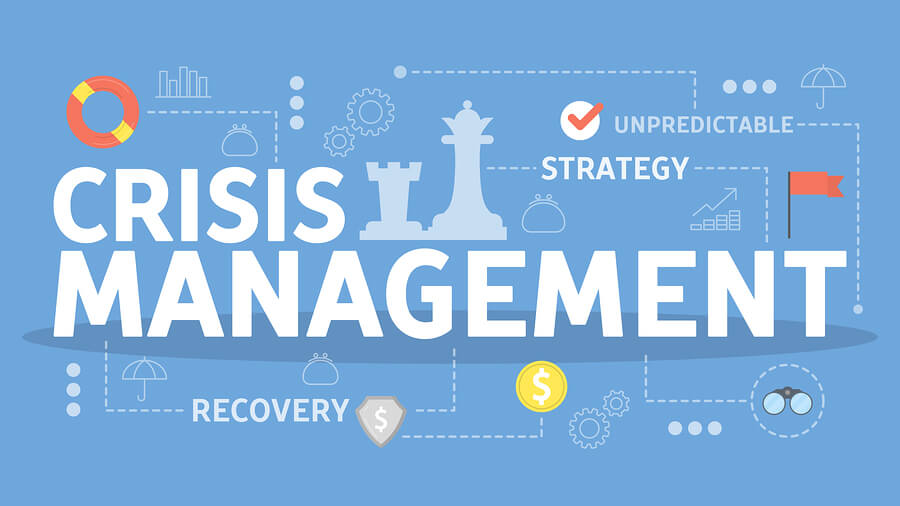How do you manage a crisis? A better question is, How do you conquer a crisis?!
If you’re a Millennial, the last time a COVID-sized crisis struck, you were anywhere from 5-20 years old. I’m speaking the Sept. 11, 2001 attack on America.
As with the current COVID-19 crisis, that devastating attack affected millions of people. The reverberations have lingered for the past two decades. They led, for example, to the creation of the TSA and its detailed security inspections at airports, neither of which existed before 9/11.
In all likelihood, the far-reaching effects of the coronavirus also will be with us for quite a long time.
LIFE-CHANGING CRISES
A crisis like this reminds each of us it’s important to be a considerate citizen of society. We learn to be flexible by adjusting to new rules—like sheltering in place.
A crisis even can change our language. Just as those who lived through 9/11 can recall exactly where we were that terrible day, years from now, we’ll look back at this pandemic as the time we learned about social distancing and quarantine life.
There are valuable lessons to be learned from these global events that can help Millennials, and those of any generation, better manage—and conquer!—crises that are part of doing business in any industry.
As CEO of specialty apparel retailer rue21, I had to confront a worldwide business crisis in 2011: a cotton shortage.
NIPPING A COTTON CRISIS IN THE BUD
Obviously, the shortages of medical equipment—ventilators, testing kits, masks—that affected the initial efforts to contain coronavirus are infinitely more serious than a cotton shortage affecting clothing stores.
The cotton shortage never undermined our business, for one simple reason: I didn’t allow it to.
I immediately took a stand with our suppliers, who were raising the cost of cotton goods for most other retailers. I refused to pay more than what we had been paying because I didn’t want to raise prices to customers and I didn’t want the higher costs to cut into our profit margin.
That strategy worked. In a crisis scenario, you have to act from a position of strength. That means leaning forward and making bold, sweeping moves. If you lean back, intimidated by the crisis, you risk tripping over yourself and having a hard time getting back on your feet.
If you’re not in a leadership role, you’re still critical — as a team player. Make sure the team leader knows you’re there to help them and your colleagues. That’s never more critical than during a crisis.
TAKING THE LEAD TO PUSH BACK
As the severity of the coronavirus grew, local leaders—namely state governors—took a strong stand to fight the community spread by shutting down businesses and limiting the size of social gatherings.
The key to that kind of crisis management—whether it’s countering a shortage of cotton or a deadly virus—is not to worry whether your action is popular with others. It’s not that you shouldn’t listen to those around you. Encourage feedback and absorb what they contribute. After that, make your decision and stand behind it.
You cannot even worry whether it will cost you your job. Your allegiance is to the business and its employees first, to your job security second. Just be totally confident that you’ve made the right move.
DEVISING A PAYMENT PLAN
If I were still at rue21 today, I’d be faced with the task of closing stores and reducing our workforce for the duration of the business shutdown. My plan would be to pay certain employees and defer pay to others to manage our cash reserves.
In that kind of situation, a company leader must find new ways to manage money, similar to working a household budget in a time of crisis. You need to prioritize essential resources and protect them until business is back up and running.
To help maintain liquidity, I would use the same buyback strategy that worked for me very so well at rue21. In tough times, we would buy back at a lower price the goods that we had canceled.
It’s crucial during a downturn—let alone a mass shutdown of business—to carefully control inventory so you’re not stuck with a surplus of goods.
As part of that strategy, I also would look to source our merchandise from domestic suppliers and domestic importers, cutting back on our own direct imports from outside the country to have more flexibility to maneuver in this time of crisis.
STAYING CONNECTED
Another great lesson in how COVID-19 has been handled is constant communication and transparency. I specifically note how Gov. Andrew Cuomo has appeared every day on TV to update his constituents on progress made and new measures implemented to “flatten the curve” of the contagion. His style has been nurturing, clear, and forceful—a role model for how to lead from strength during a crisis.
Using the same principle of transparency to keep people who rely on you regularly informed, at rue21, I sent a newsletter called Biz Sunday, which I wrote myself, to the home office support team and field leaders.
That was a weekly routine, not a crisis strategy, but my goal was to keep the lines of communication open. In the event of a crisis, it would pay dividends all around that I had built a foundation of trust and accessibility in keeping everyone up to date on companywide progress and initiatives.
In the current situation, I would broadcast daily updates via social media and host virtual meetings online to keep our team engaged, letting them know we’re all in this together.
Even under extreme circumstances, you want to keep your employees loyal to the brand and to the mission. It’s a time to show bold leadership and confidence in the future, playing the steady hand when those who count on you are anxious about their future.
Originally posted on Forbes.

